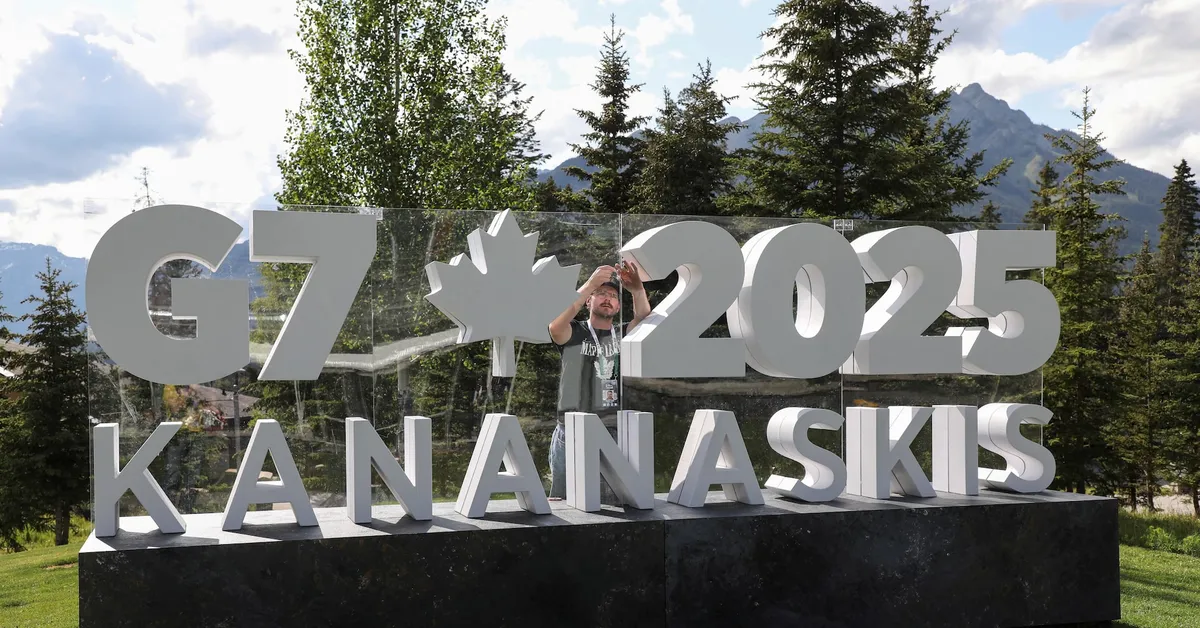
BANFF, Alberta, June 15 (Reuters) - The leaders of the Group of Seven (G7) nations are convening in the picturesque Canadian Rockies starting Sunday, amidst escalating tensions with the United States over various foreign policy and trade issues. The host, Canada, led by Prime Minister Mark Carney, is making efforts to navigate these tensions while avoiding confrontations with President Donald Trump.
Prime Minister Carney has outlined several key priorities for the summit, emphasizing the need to strengthen peace and security, establish critical mineral supply chains, and create jobs. However, contentious topics such as U.S. tariffs and ongoing conflicts in the Middle East and Ukraine are anticipated to dominate discussions.
Recent actions, including a series of strikes launched by U.S. ally Israel across Iran, have further complicated the diplomatic landscape, undermining Trump's previous efforts to prevent such military actions. The summit is set to take place in Kananaskis, approximately 90 km (56 miles) west of Calgary. Notably, during Canada's last hosting in 2018, Trump left the summit prematurely, publicly criticizing then-Prime Minister Justin Trudeau as "very dishonest and weak."
Experts, including Roland Paris, a professor of international affairs at the University of Ottawa, suggest that the summit's success hinges on avoiding any major outbursts from Trump. Paris noted, "This will be a successful meeting if Donald Trump doesn't have an eruption that disrupts the entire gathering." Tensions are heightened as Carney has signaled potential reprisals against the U.S. if tariffs on steel and aluminum are not lifted.
Diplomatic sources indicate that Canada has abandoned the idea of a traditional comprehensive joint communique, opting instead for chair summaries to mitigate potential fallout and maintain engagement with the U.S. A senior Canadian official remarked that the focus will be on tangible actions that the G7 members—Canada, France, Germany, Italy, Japan, the United Kingdom, and the United States—can undertake collaboratively.
The summit, running from Sunday to Tuesday, will also welcome leaders from countries such as Ukraine, Mexico, India, Australia, South Africa, South Korea, and Brazil. Many of these leaders are expected to discuss their unique concerns with President Trump. A senior U.S. official highlighted that discussions will encompass a wide range of topics, including trade, the global economy, critical minerals, migrant and drug smuggling, wildfires, international security, artificial intelligence, and energy security.
The upcoming summit serves as a critical test for Trump's willingness to collaborate with allies on global issues. Max Bergmann, a director at the Center for Strategic and International Studies, stated, "The big overarching question here is, basically, is the United States still committed to formats like the G7? That is going to be the big test." French President Emmanuel Macron has expressed optimism about his relationship with Trump, despite notable disagreements on key issues such as Ukraine and climate change.
As the summit approaches, the world watches closely to see whether the G7 can navigate its internal divisions and reaffirm its commitment to addressing shared global challenges.